The Ashram Albums of Alice Coltrane Turiyasangitananda
Alice Coltrane was a singular cultural figure: an African American woman, a classically trained pianist, an avant-garde jazz musician, a prolific recording artist, a mother, a spiritual guru and more.
Before she was Alice Coltrane, she was Alice Mcleod, a Detroit girl, born and bred. She played organ at the Mount Olive Baptist Church. This was an early experience of connecting spirituality and music. She got into the groove of these dynamics, scoring the soulful ebb and flow of praise and devotion.
She was church-primed and classically trained, but jazz is what really got her moving. After a stint in Paris, studying bebop with Bud Powell, Alice landed a gig playing piano and vibes with Terry Gibbs. They were sharing a bill with John Coltrane at Birdland when Alice first connected with the jazz giant. The two swiftly fell in love and were soon married.
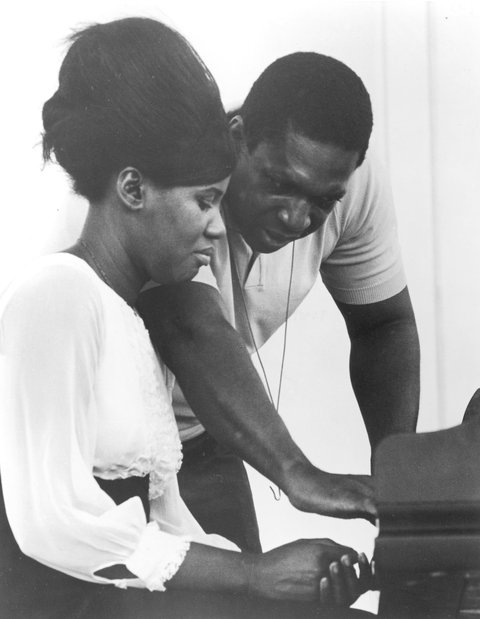
They were a couple on a quest, forging connections to the cosmos. Studies of Eastern religion and meditation fueled their musical expression and John invited Alice to join his band. The Coltrane’s were blazing trails together, but it was a journey Alice was to continue on her own.
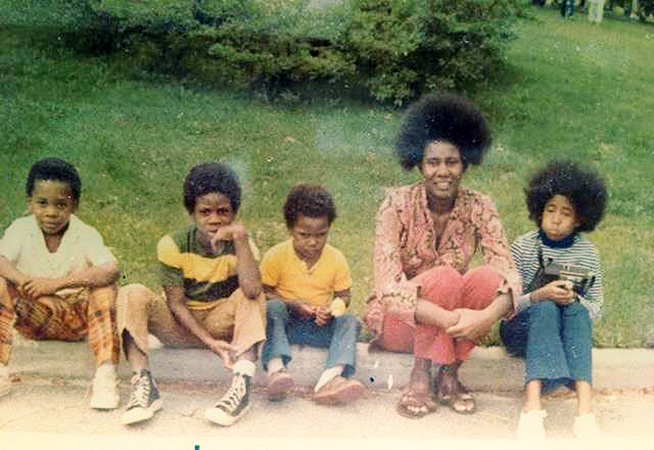
John Coltrane passed away in 1967— leaving 30-year old Alice, a single mother raising four young children. Describing this tumultuous period, she recalls intense spiritual trials or tapas, both physical—burns that charred her skin, sonic bombardments, and drastic weight loss, and metaphysical—wonders and revelations, the experience of astral-projecting through the universe, and hearing strains of celestial music played on heavenly instruments.
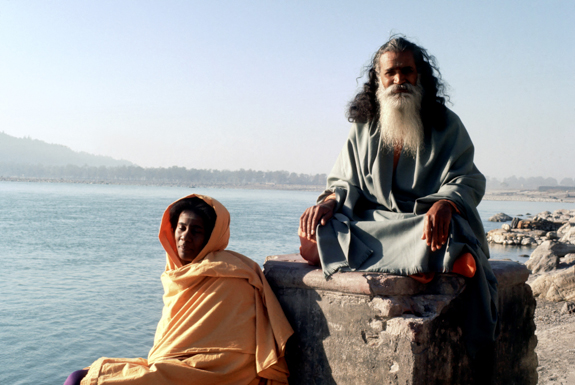
Alice considered these tribulations essential to her transformation. Her path was further clarified after traveling to India with Swami Satchidananda—the yoga master and spiritual guru. While Eastern religion proved just a fad for many of the era, for Alice it was her destiny.
A renewed vigor can be heard in her solo albums of the 70s. They are lush works filled with eastern tonalities and exotic instrumentation. Majestic string arrangements rise alongside searing grooves that burn and swing then dissolve into stardust. This was consciousness-enhancing, proto-world music far ahead of its time.

She released a run of albums with an arc towards infinity but then she seemed to suddenly disappear. “Alice Coltrane” had evaporated, but in her place stood Swamini Turiyasangitananda. A new name befitting her enlightened form. “Turiyasangitananda“ translates to “The Transcendental Lord’s Highest Song of Bliss.” A clear sign she was fully devoted to a spiritual life in sound.

In 1975, Turiya founded the Vedantic Center Ashram, with its roots in San Francisco’s One Mind Temple, now known as the Church of St. John Coltrane. Eventually, she relocated her Ashram to a quiet canyon nestled in the golden hills near Malibu. Here, she played more music than ever before, all for a higher purpose.

The emotion in her vocal recordings is hard to define. Turiya called it “soul reflection”. In Brazilian music they would call it saudade and in Ethiopia it’s tizita, a heart-tugging nostalgia that’s equal parts bliss and longing. In Turiya’s case, perhaps this was a yearning for the infinite.
She instilled in her devotees the transformational power of sound and that by chanting the names of god one could connect to divine consciousness. Music was the foundation of Turiya’s spiritual practice and at her ashram, she conducted epic bhajan session where her devotees’ chants were guided by the swirl and pulse of her Wurlitzer organ into uncharted, cosmic planes.
Alice “Swamini Turiyasangitananda” Coltrane independently published 4 albums on cassette and cd in the 80s and 90s. Like the bhajans in the ashram mandir, they are full of Sanskrit chanting over organ, climactic strings and sweeping synthesizers. These were distributed almost exclusively within the spiritual community and if you wanted them, you had to make a pilgrimage to the ashram. This obscure body of work is emblematic of her devotion and quite possibly the greatest reflection of her spirit.

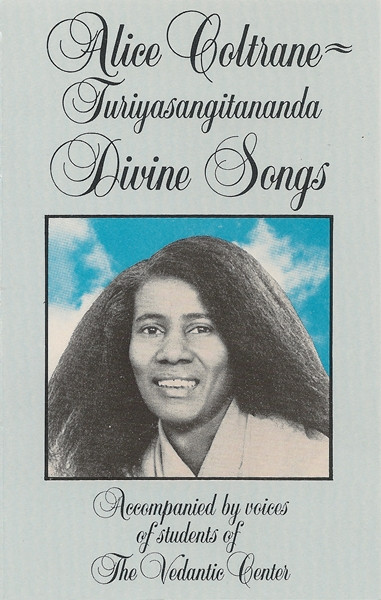
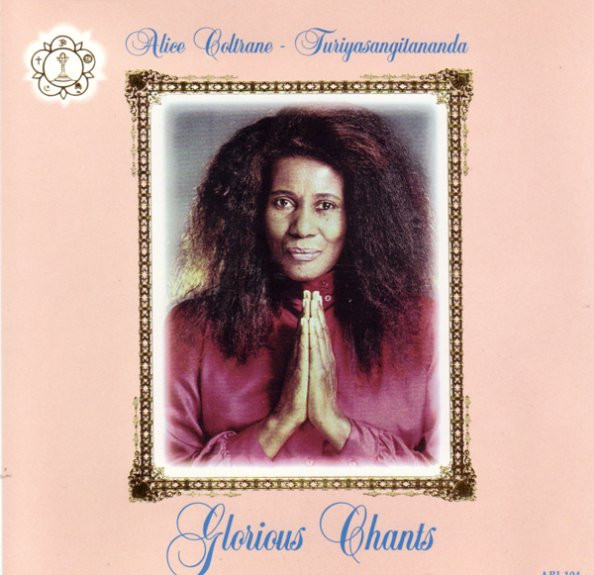

Turiya’s flavor of devotional music also had a real swing and groove to it. It was transcendent Vedic funk in which you can hear the vivid artifacts of her gospel and be-bop backgrounds blended into a new amalgam. Turiya was making this music completely free of the expectations and pressures of the commercial recording system. She was doing this on her own terms and the results are enthralling. This is the sound of self-realization.
These swirling, meditative mantras are sometimes sung solo with serene fragility by Turiya and at other times float on the ashram choir’s lofty gospel tones. Throughout, Turiya's synthesizer dives, sweeps, and soars like a million stars transmitting ancient grace. These are the tones of a luminous glow that is gentle but powerful. It is music made by a woman and her devotees who were in astonished love with the immense universe and the euphoria they had found within it.
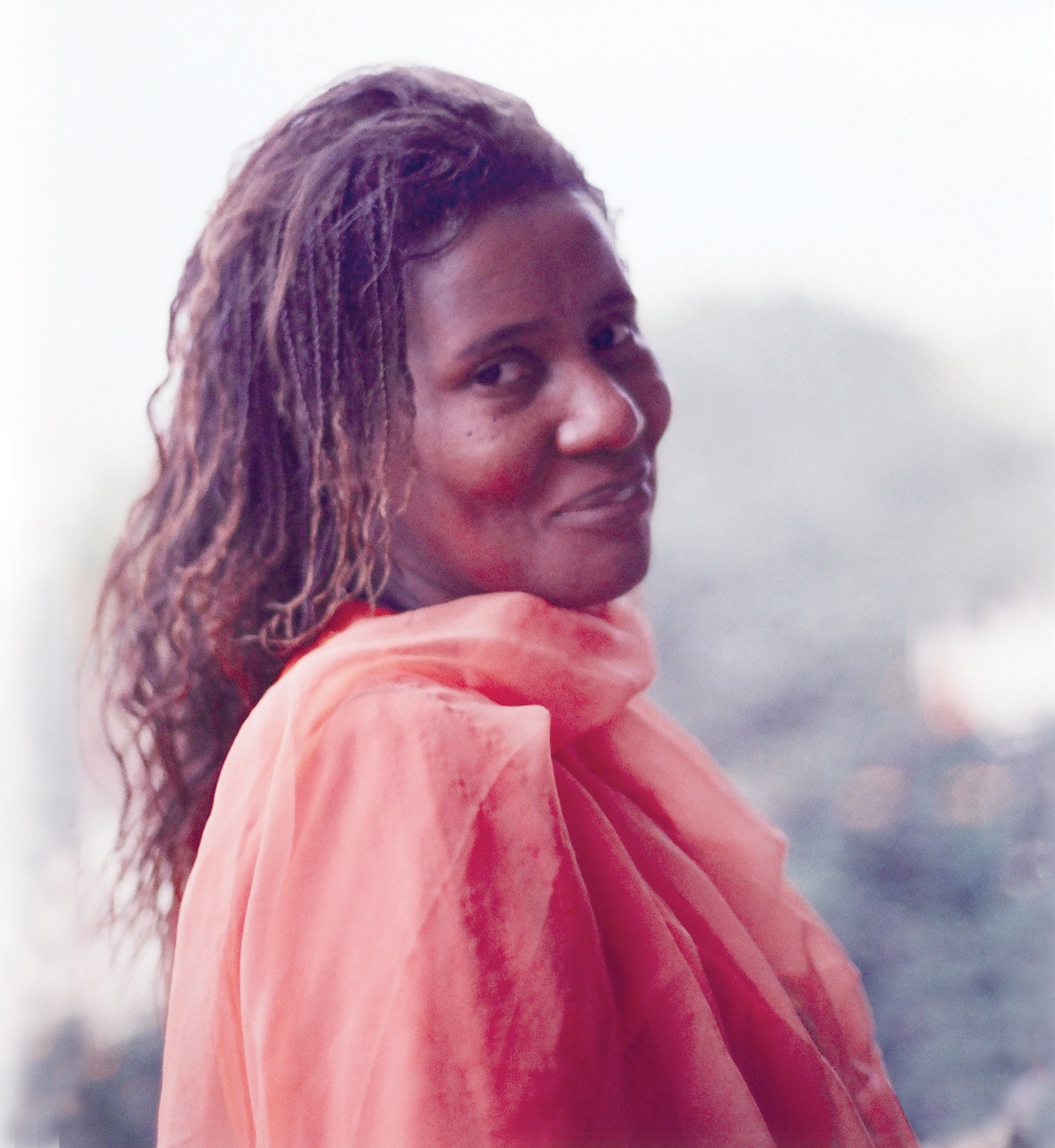
We’re finally catching up with Alice Coltrane’s vision and gaining a deeper understanding of her legacy. After long being overlooked, her influence is resonating with contemporary musicians, listeners, and critics and while we often rush towards clarity, she seems to have given a gift that was intended to be discovered in its own time by those seeking it.
John and Alice's son Oran Coltrane sums up the power of his mother’s music as, “A beam of light that goes straight through your chest." I hope it deeply impacts you as well.
- Mark “Frosty” McNeill
︎
Ashram Tapes Discography
Coltrane, Alice. Turiya Sings. Avatar Book Institute, ABI-100, 1982, cassette.
Coltrane-Turiyasangitananda, Alice. Divine Songs. Avatar Book Institute, ABI-101, 1987, cassette.
Coltrane-Turiyasangitananda, Alice. Infinite Chants. Avatar Book Institute, ABI-102, 1990, cassette.
Coltrane-Turiyasangitananda, Alice. Glorious Chants. Avatar Book Institute, ABI-104, 1995, compact disc.
Coltrane-Turiyasangitananda, Alice. World Spirituality Classics, Volume 1: The Ecstatic Music of Alice Coltrane Turiyasangitananda. Luaka Bop, LBOP-087, 2017, LP and compact disc.

